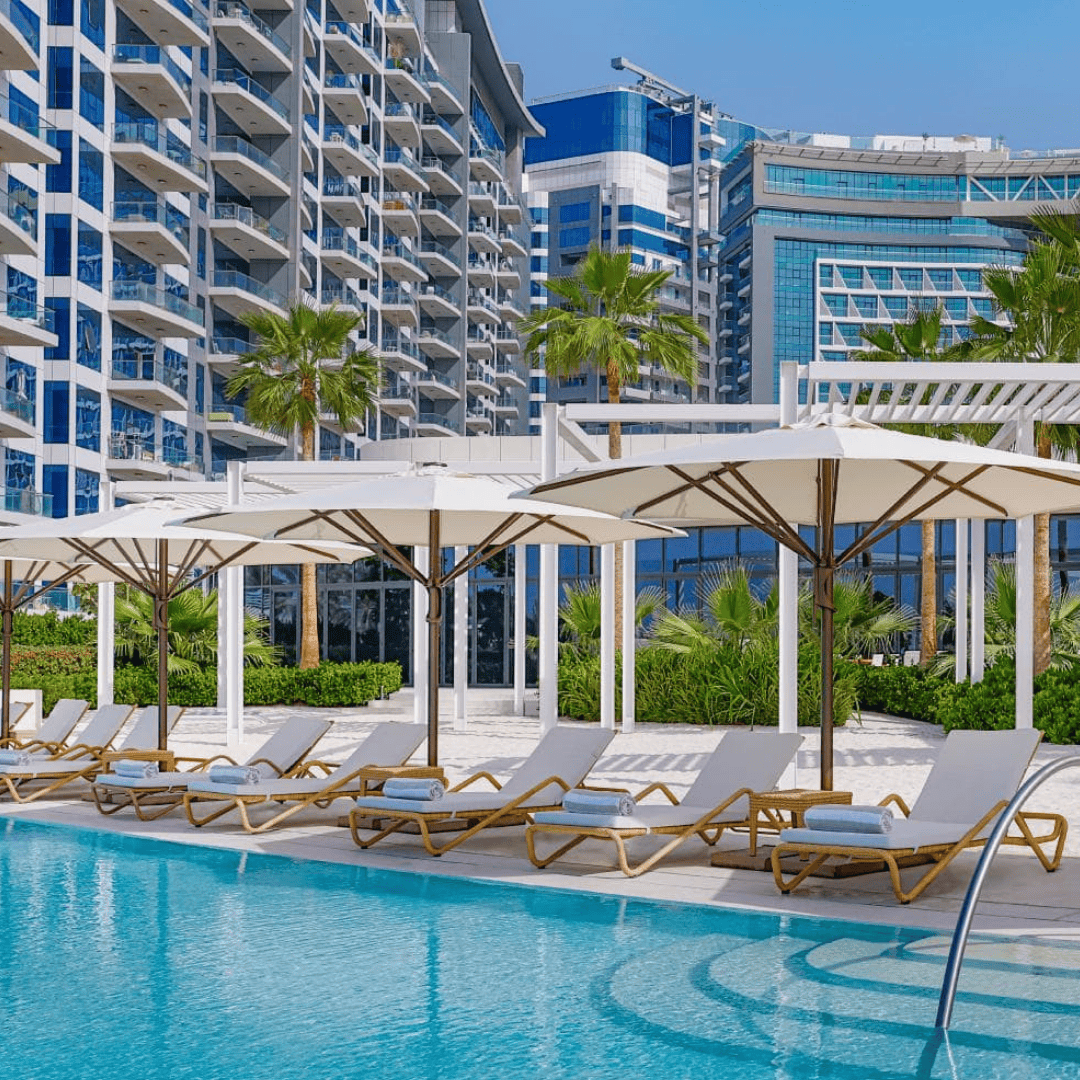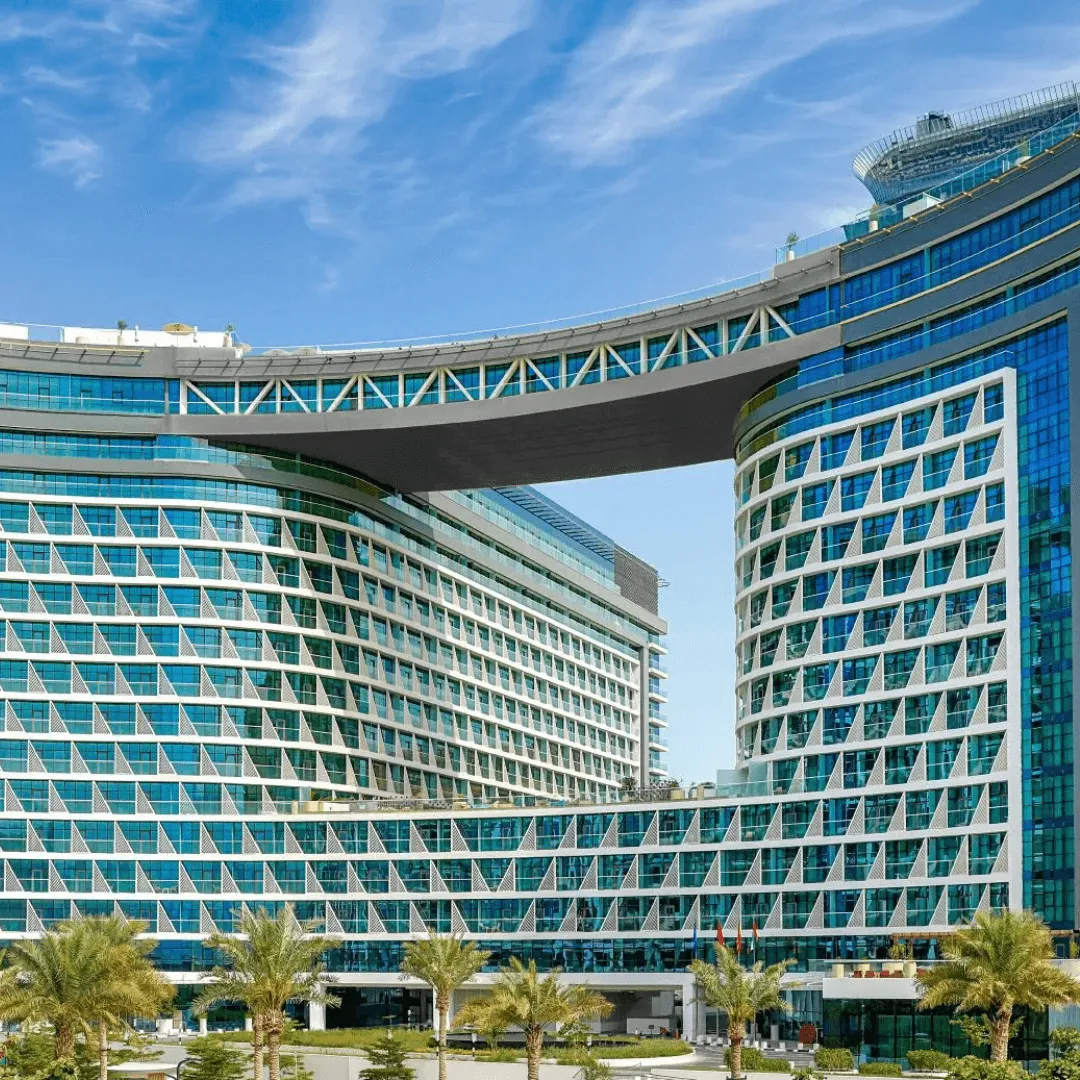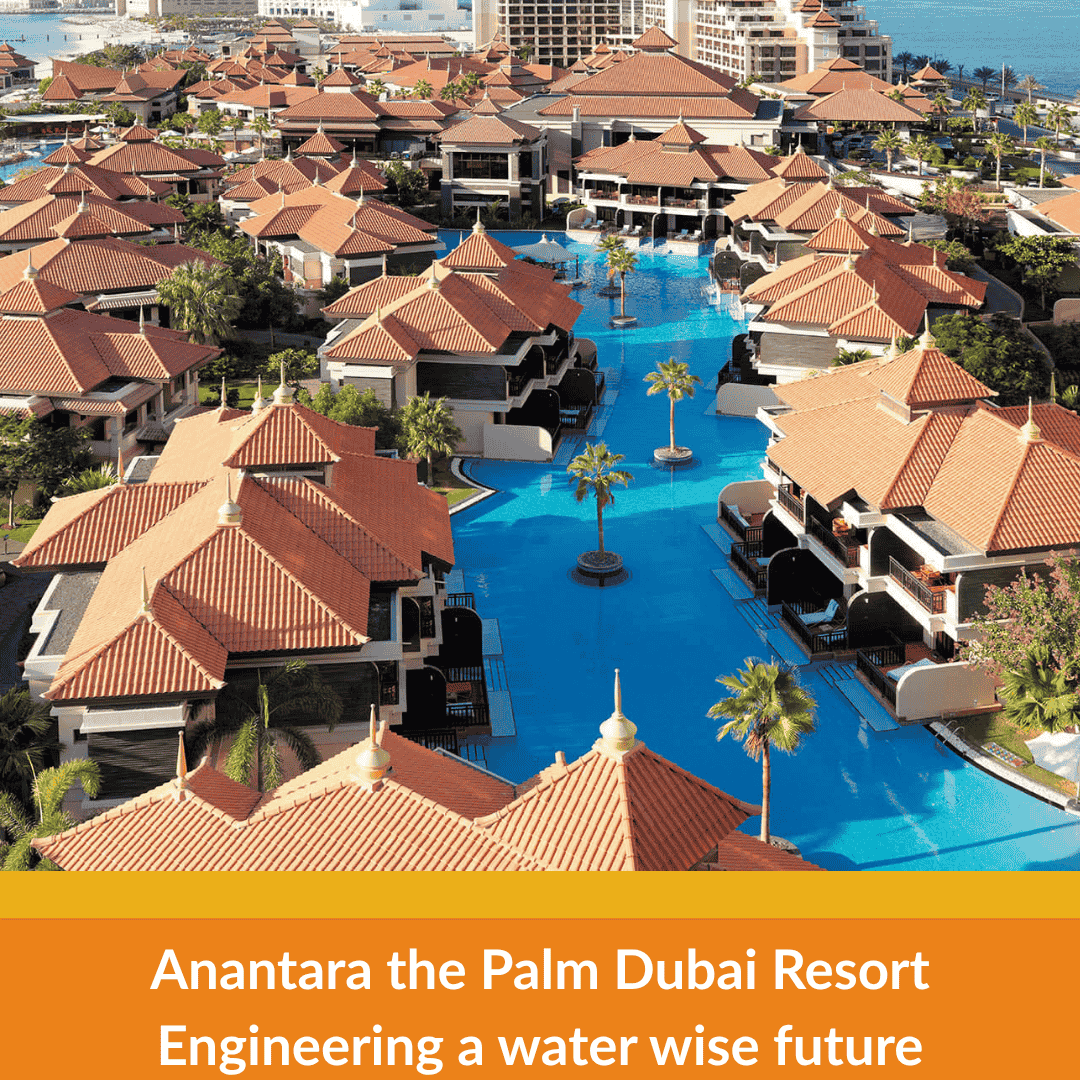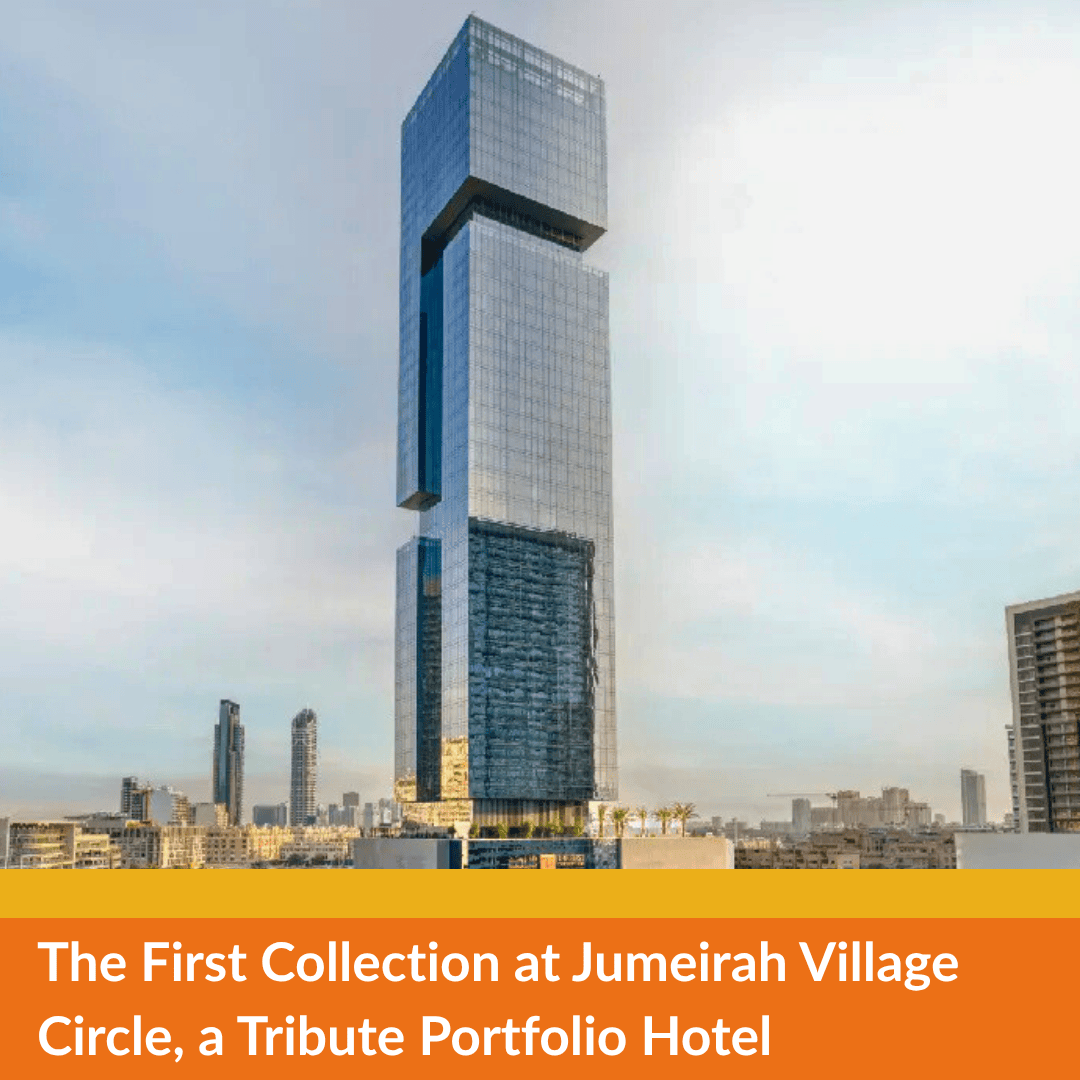Nestled on Dubai’s iconic Palm Jumeirah, NH Collection Dubai The Palm is known for its luxurious service and scenic location, and is now equally recognised for its progressive environmental initiatives. As part of Minor Hotels’ global sustainability strategy, this property isn’t just following trends. It’s setting them.
In 2024, the hotel took a significant step by conducting a comprehensive carbon footprint analysis to understand its impact and set a clear roadmap to reduce it.
The result? A total carbon footprint of 9,335,096 kg CO₂e, or 62 kg CO₂e per room night—an impressive figure well below the UAE’s full-service hotel median of 98.8 kg. This analysis not only established a performance benchmark but also unlocked a blueprint for a greener future.
Why Carbon Counts in Hospitality
The hospitality industry contributes around 2% of global carbon emissions, with hotels being major energy, water, and waste consumers. A single guest night can use 150–200 kWh of energy, which is more than the average home day-to-day.
Guests are noticing, too. According to Booking.com, 72% of travelers now prioritise sustainable stays. As expectations grow, hotels must adapt—not just to meet demand, but to ensure the planet is still here to welcome future guests.
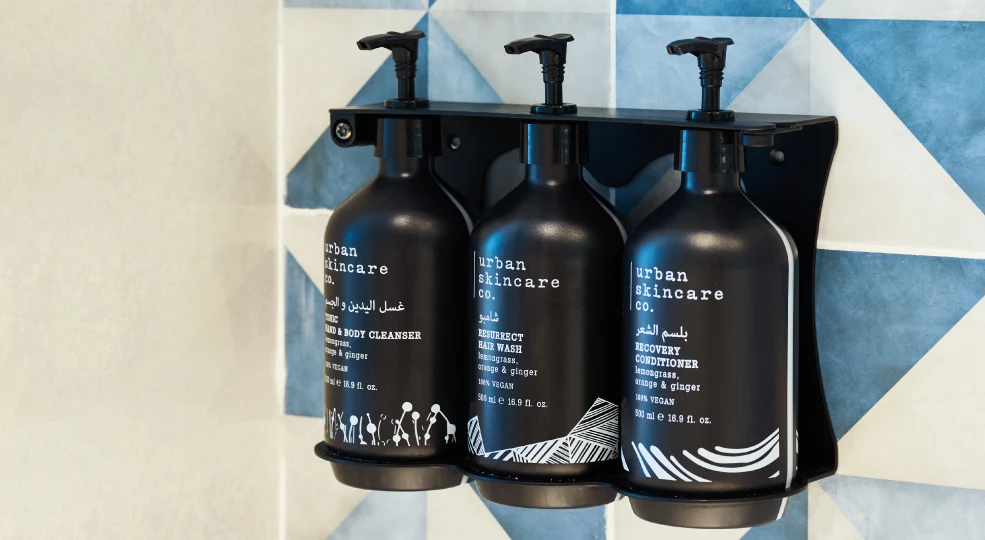
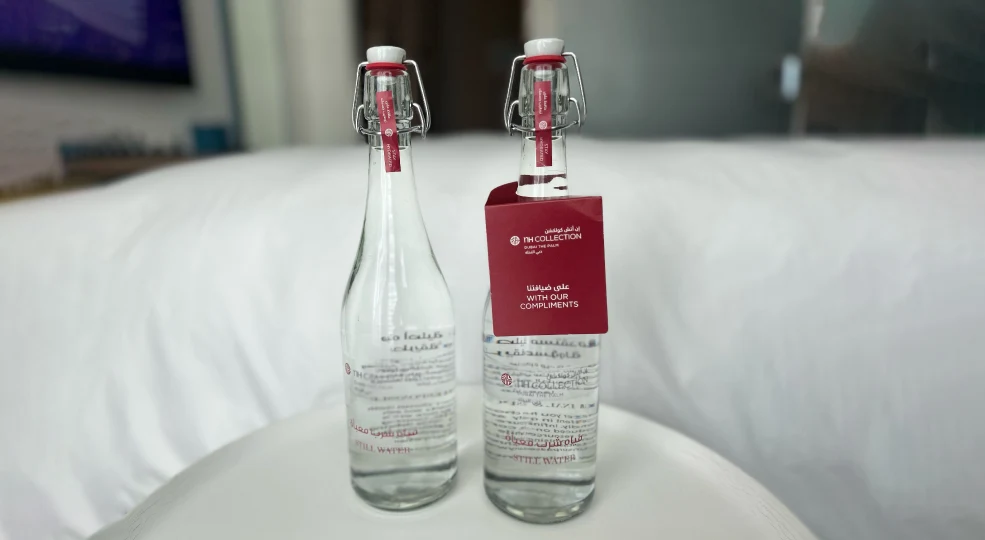
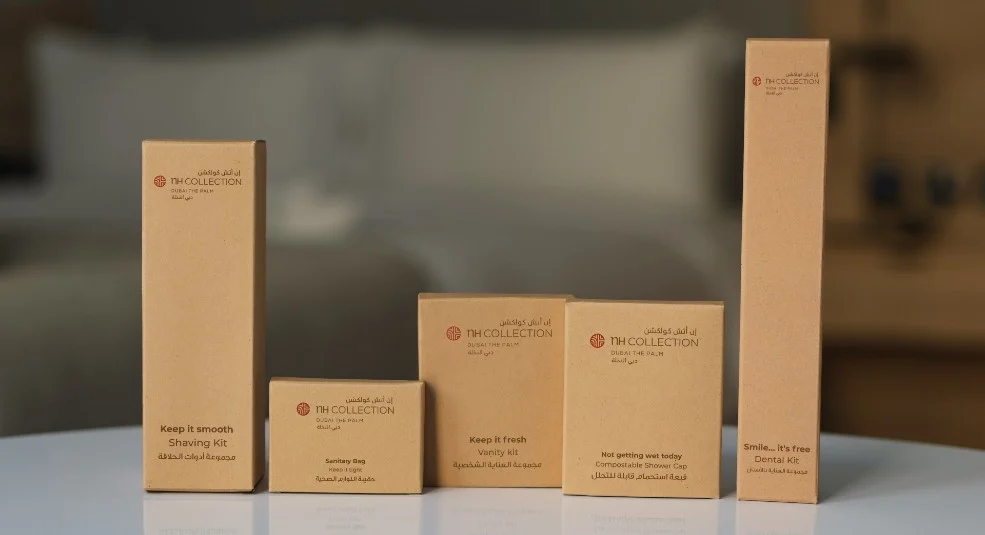
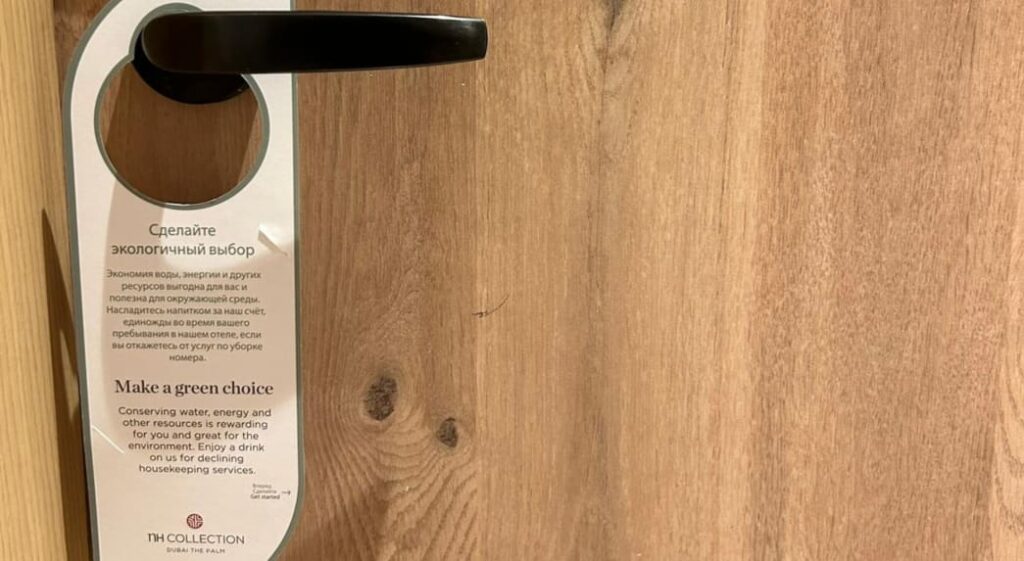
Measuring what Matters
Partnering with the Sustainability Kiosk team and ecollective, NH Collection Dubai The Palm followed the GHG Protocol, combining primary data with reputable industry averages. This approach ensures their reporting isn’t just accurate—it’s actionable.
Here’s a break down of their emissions:
- Scope 1 (Direct emissions) – 457,585 kg CO₂e (Gas, refrigerants, hotel vehicles)
- Scope 2 (Purchased electricity & district cooling) – 3,895,147 kg CO₂e
- Scope 3 (Everything else – from suppliers to guest travel) – 4,982,364 kg CO₂e
To put 62 kg CO₂e per night in context, that’s equivalent to:
- Driving 333 km in a petrol car
- Eating 3.5 8oz steaks
- Spending 1,026 hours on a smartphone
- A one-way flight from London to Paris
The Road to Net Zero: A Five-Pillar Strategy
NH Collection Dubai The Palm isn’t stopping at measurement—they’ve set an ambitious goal: a 5% annual emissions reduction by 2026, on the path to Net Zero by 2050.
Here’s how they’re making it happen:
💚Energy Efficiency
Upgrading building management systems and adopting energy-saving technologies, the hotel is targeting a 5% reduction in energy use each year.
💚Waste Reduction
From increasing recycling rates to reducing food waste and eliminating single-use plastics, the hotel is on a mission to clean up its act—literally.
💚Sustainable Travel
The hotel is phasing in electric vehicles and encouraging carbon-conscious travel among staff and guests. Personal carbon budgets help reduce flights, while greener commuting options get the spotlight.
💚Employee Engagement
The hotel is investing in Carbon Literacy training, empowering its team, and embedding green practices into daily operations through regular check-ins and performance tracking.
💚Plant-Based Menus
Meat consumption has a huge carbon footprint. The hotel is expanding its plant-based offerings at F&B outlets to give guests delicious, lower-emission options, without compromising on taste.
Recognised with a Platinum Certification from Green Growth 2050, NH Collection Dubai The Palm exemplifies how sustainability enhances guest experience and operational excellence in the luxury hospitality sector.
To read more about the sustainability initiatives that NH Collection Dubai The Palm have implemented, read here.
If you’re looking to cut the carbon footprint for your hospitality business, browse through our Marketplace – a platform for verified solutions that support reduction in emissions.
Read other hotel case studies on other intriguing sustainability initiatives taking place around the UAE.
